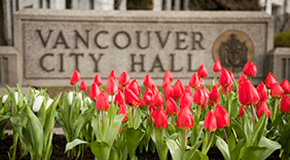VANCOUVER City Council approved over 8,800 new housing units in 2021 – the most since Housing Vancouver was approved in 2017. With an emphasis on creating more of the right kind of homes across a broad spectrum of incomes and housing needs, these homes include:
* 1,344 new social and supportive housing units approved, the second highest approvals since 2010;
* 2,956 new purpose-built market rental units approved, including 176 new below-market rental units, the highest approvals in several decades; and
* 439 new townhouses approved, significantly higher than the ten-year average.
“Vancouver is experiencing a high demand for housing, fueled by job recovery, higher migration to BC, and students returning to in-class learning,” said Theresa O’Donnell, General Manager of Planning, Urban Design, and Sustainability, on Thursday. “Encouraging the development of new rental housing is critical to ensuring there are a variety of housing options to meet the diverse needs of people who live and work in Vancouver.”
For the second year in a row, over half of all housing approvals in 2021 were purpose-built-rental or social housing. In a city where over 50 per cent of current residents and 75 per cent of new households are renting, this is a major milestone and a key goal of the Housing Vancouver Strategy.
In addition to significant approvals, the City saw a substantial number of new homes completed in 2021, including:
* 689 new purpose-built rental housing units; and
* 1,669 social housing units, providing homes for existing and new lower income residents. This represents the highest number of new homes completed in this category in recent decades.
“That’s almost 1,700 new homes opened in 2021 to help meet needs of lower income households,” said O’Donnell. “Partnerships are key to making these projects a reality. While we can enable zoning to support these projects and provide density bonuses and grants, we rely on senior government funding and non-profits to deliver on deeper affordability and to operate the buildings. The Federal Rapid Housing Initiative is just one excellent example. Through this funding, and in partnership with the Provincial government who provided operating subsidies, we were able to acquire and open a number of warm and safe homes to people at-risk of experiencing homelessness.”
In 2019, the BC Provincial government introduced a new Housing Needs Report requirement for all BC municipalities in response to increasing concerns about housing affordability and its impacts on British Columbians.
Housing Needs Reports are intended to help identify existing and future gaps in housing supply by collecting and analyzing quantitative and qualitative information about local demographics, economics, housing stock, and other factors.
“While the City is making significant progress toward enabling new housing supply, much work is needed to address the current housing need, future demand, and long-standing backlog in delivery of non-market and rental housing,” said O’Donnell. “Vancouver’s Housing Needs Report confirms the magnitude and diversity of existing housing needs and future demand in the city.”










